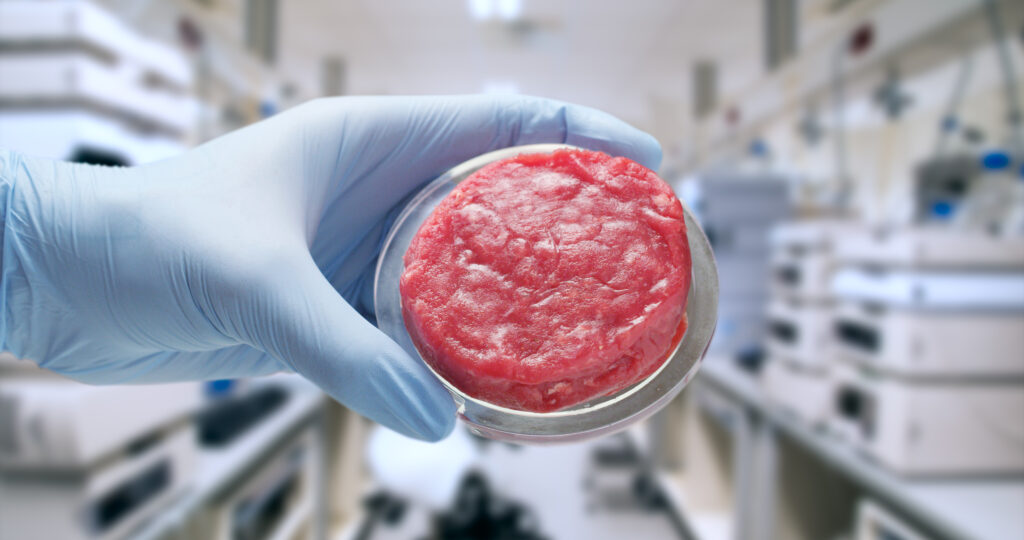Criticisms have been raised at the Food Standards Agency (FSA) for wanting to accelerate approval of lab-grown meat for the UK market.
The FSA is reportedly planning to use the approval of regulators in other countries to allow technologies like lab-grown meat and insect-based products to be consumed in the UK. The agency has published plans that would ensure approval faster than existing laws inherited from the EU, according to the Grocer.
This follows recent reports that the FSA is looking to do a deal with Israel, where the health Ministry approved cultivated beef from a company called Aleph Farms in January. The company’s products are made from starter cells that come from a fertilised egg, sourced from a premium Black Angus cow named Lucy, Jewish News reports.
The FSA believes that the move will help it ‘escape EU regulation’ and get through its current backlog of approvals but the move has sparked accusations of ‘hypocrisy and duplicity’ from stakeholders in the traditional meat industry.
Association of Independent Meat Suppliers (AIMS) spokesperson Dr Jason Aldiss contrasted this approach with the FSA’s refusal to reconsider regulatory controls inherited from EU legislation for the meat industry that have been labelled as ‘stringent’ and ‘unscientific’.
See also: Defra promises to work with pig industry on pig identification changes
He said departing from the EU offered the chance to reassess and potentially reduce the regulatory burden on the UK meat sector. “Contrary to these expectations, the industry has experienced an increase in regulatory pressures, further exacerbated by the FSA’s recent suggestions to relax regulations around the production of alternative protein sources, such as lab-grown meat” he said.
“Given the meat industry reportedly contributes upwards of 70% of the FSA’s funding, this apparent shift towards support for alternative protein sources does raise questions about the FSA’s suitability and fitness for purpose.”
“The controversy extends to the classification of lab-grown meat as ‘ultra-processed’ food, juxtaposed against traditional meat, which is celebrated for being a natural, high-quality source of protein and essential nutrients.”
AIMS have also levelled challenges at the FSA notion of labelling synthetic lab-cultured products as ‘food’, arguing that the endorsement of these products could damage the agency’s mission of upholding health food standards.
Mr Aldiss also suggested the move reflected an ‘anti-meat influence’ AIMS believe is permeating through some government departments, leading for calls of a comprehensive review of the FSA’s to ensure its decisions are grounded in scientific research.
“In response to these concerns, there is a growing demand for a meaningful dialogue between the FSA, industry stakeholders, and consumer groups to address these discrepancies and work towards a regulatory framework that supports innovation in food production while maintaining the competitiveness and sustainability of the traditional meat industry” concluded Jason.
Plans on further action for cultivated meat are expected from the FSA next month.




